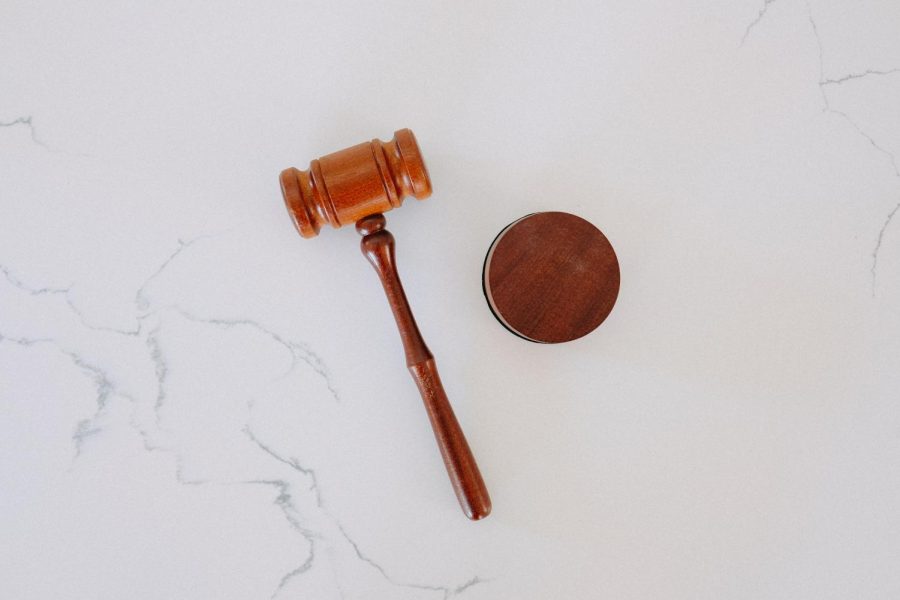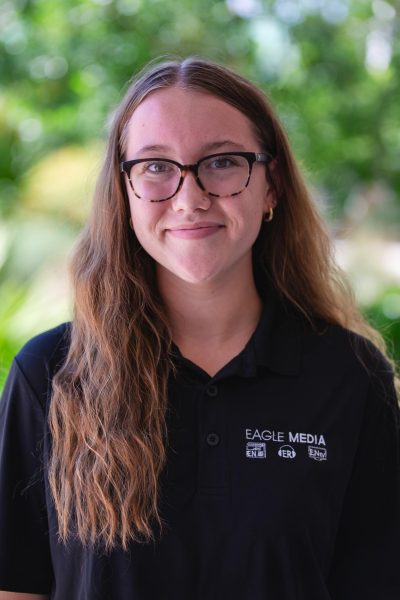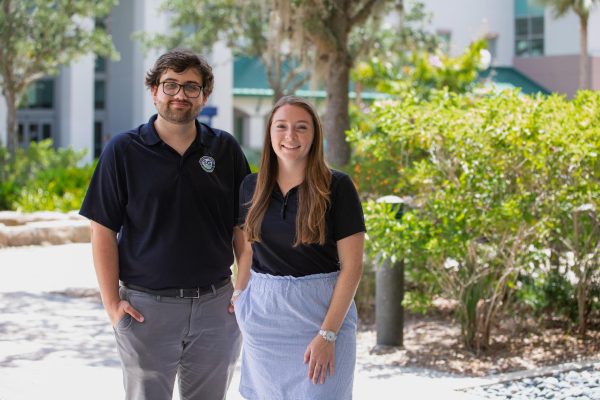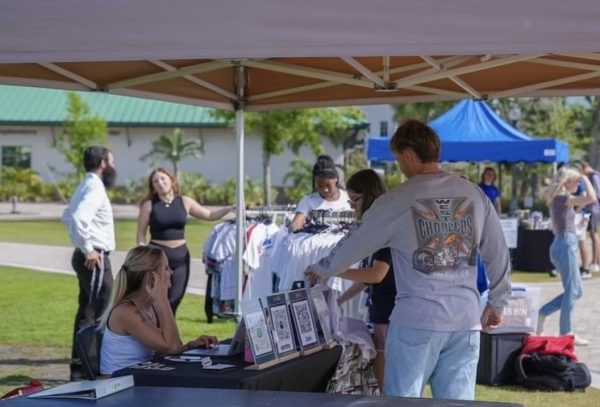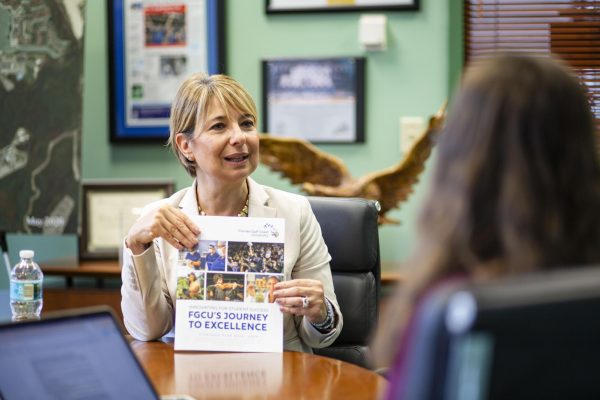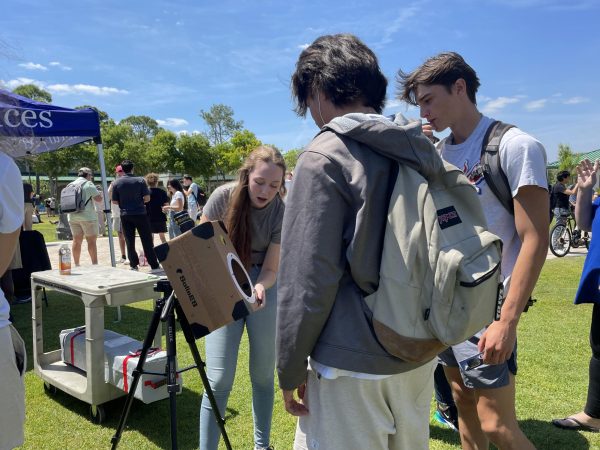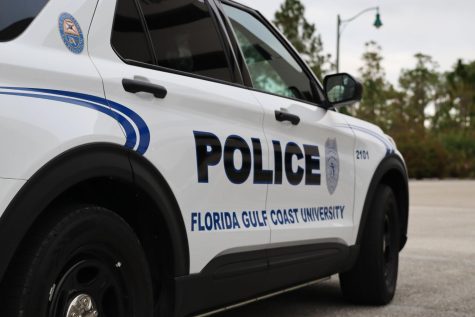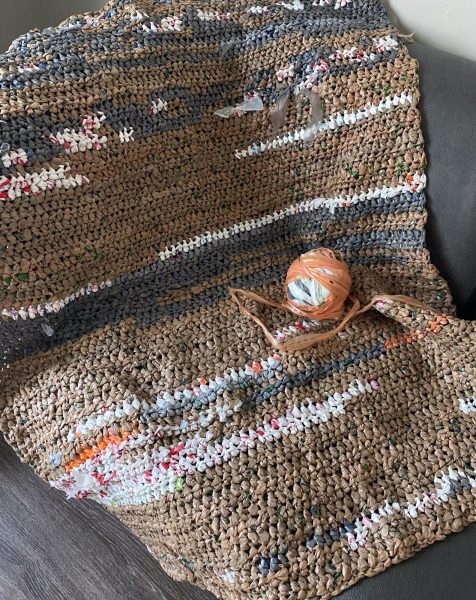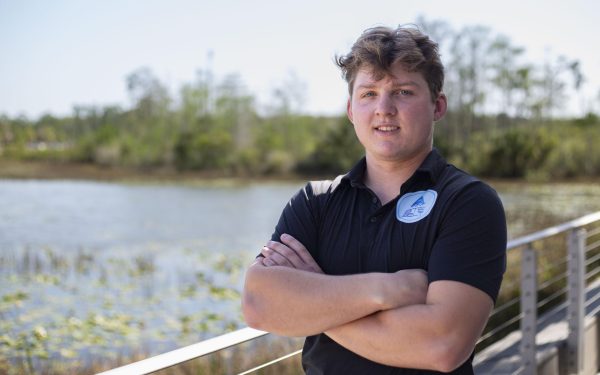SG Candidate Debate Restructured as a Town Hall Forum
February 22, 2023
FGCU’s newest supervisor of elections, Owen Rhoads, has decided to switch up this year’s “debate” by removing the opportunity for candidates to respond to one another. This year, Student Government will be hosting a candidate forum in its place.
This year’s presidential, vice presidential, treasurer and senatorial candidates were announced on Tuesday morning. Their campaigns have officially begun and they must now adhere to the Code of Elections.
Because of disagreements that occurred in and outside of last year’s debate, Rhoads, along with Student Government Chief Justice Julianna Manes and their interim staff advisor, Lindsey Johns, made the decision earlier in the semester to remove the opportunity for candidates to give comment on one another’s responses in the forum.
“It wasn’t so much what happened at the debates, but more what transpired because of the debates. The candidates found it a time to be argumentative. Which is understandable, it is a debate,” Rhoads said. “But we felt that it carried on past the debates where they were a bit more hostile towards one another and that is just not the environment we’re trying to create.
“The primary change is going to be that candidates are not allowed to respond to each other. I think they will be well equipped. The biggest part of this is public speaking, that is going to come with being a student body president: public speaking,” he continued.
The candidate forum is not mentioned in the Code of Elections, meaning there is a lot of freedom in how the event can take place.
“Last year there were arguments that happened outside of the debate that transpired because of things said in the debate, so I think having it more as a town hall, where they can mostly focus on themselves and the ideas they have for the university and for their position here, will allow them to worry less about the other ticket and focus on promoting themselves,” Rhoads said.
Candidates are allowed to campaign in designated areas on campus and are allowed to run social media accounts for their campaign. This is where Rhoads sees it appropriate to share their views on their opponents stances, not during the forum.
“There is a whole section on ethics in the campaigning process, so if they are not violating said expectations, then they are more than welcome to disagree with one another,” Rhoads said. “Especially on social media. That will be the biggest platform for them to disagree with one another outside of the town hall.”
He has seen issues arise in past elections where candidates get into passionate arguments in and outside of the debates. He sees this time not for them to fight but to be able to present their ideas to students as to how they will handle the position they are running for.
“As long as they are following the ethical guidelines we lay out for them, I don’t see a problem necessarily with saying on social media, ‘that’s not how I would run things,’” Rhoads said.
Rhoads and his election committee are aiming for a safe election season. They understand the importance not only for the forum to run smoothly, but for the candidates to be respectful of one another. There is always a case that the candidates who do not win will be working with the winning ticket in the future.
“Many people who run in these elections and don’t win, end up serving in some capacity in Student Government in other positions,” Rhoads said. “We want to make sure that the town hall is focusing and shining on their qualities rather than trying to knock down others.”
The forum will take place Thursday at 6 p.m. in the Water School room 138. It will be recorded for students to refer back to and posted on the Student Government Elections’ Eagle Link.
































